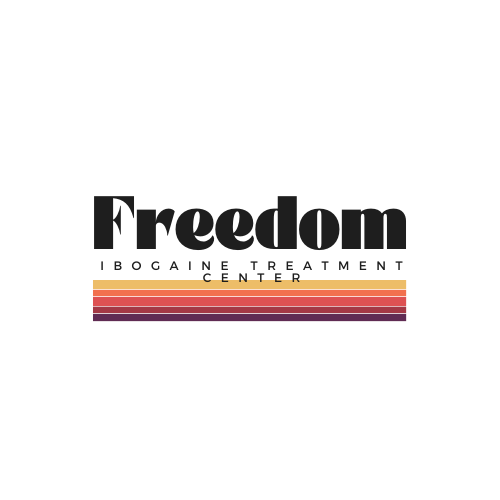In recent years, the quest for effective treatments for mental health conditions like depression and post-traumatic stress disorder (PTSD) has sparked renewed interest in psychedelic therapies. Among these, ibogaine—a psychoactive compound extracted from the root bark of the African iboga plant—has gained attention for its remarkable potential to alleviate the profound suffering associated with these disorders. For individuals who have found conventional treatments lacking, Freedom Ibogaine treatment centers offer a transformative approach, addressing both the psychological and neurological underpinnings of depression and PTSD.
Understanding Depression and PTSD
Depression and PTSD are complex conditions that impact millions globally. Depression manifests as persistent sadness, a loss of interest in life, and a pervasive sense of hopelessness, often disrupting sleep, appetite, and daily functioning. PTSD, typically triggered by trauma, brings intrusive memories, chronic anxiety, emotional detachment, and a state of constant alertness. Both disorders often arise from a mix of brain chemistry imbalances and unresolved trauma, making them challenging to treat effectively with standard therapies or medications alone.
Conventional treatments—like selective serotonin reuptake inhibitors (SSRIs) for depression or cognitive behavioral therapy (CBT) for PTSD—help some patients but leave many others searching for relief. Side effects, dependency risks, and incomplete symptom resolution are frequent hurdles. This treatment gap has fueled exploration into alternatives, with ibogaine emerging as a standout option at Freedom Ibogaine treatment centers.
How Ibogaine Works
Ibogaine’s effectiveness stems from its dual action on the brain and psyche. Unlike traditional medications that merely suppress symptoms, ibogaine seems to reset neural pathways. It interacts with key neurotransmitters like serotonin and dopamine, which regulate mood, and promotes neuroplasticity—the brain’s ability to forge new connections. This process may help repair damage from chronic stress or trauma, offering a biological foundation for recovery.
Psychologically, ibogaine induces a dreamlike state, allowing patients to revisit and process traumatic experiences from a safe, detached viewpoint. Often described as a “life review,” this introspective journey can uncover the root causes of depression or PTSD. At Freedom Ibogaine treatment centers, this experience is carefully supervised to ensure safety and optimize therapeutic outcomes, guiding patients toward profound emotional breakthroughs.
A January 2024 study from Stanford Medicine, published in Nature Medicine, underscores ibogaine’s potential. In this trial, 30 U.S. special operations veterans with traumatic brain injuries (TBI), PTSD, and depression received ibogaine with magnesium to minimize cardiac risks. One month later, participants reported an average reduction of 88% in PTSD symptoms, 87% in depression symptoms, and 81% in anxiety symptoms. Disability ratings also plummeted, reflecting improved quality of life. Though focused on veterans, these results hint at ibogaine’s broader promise for mental health treatment.
The Role of Freedom Ibogaine Treatment Centers
At Freedom Ibogaine treatment centers, ibogaine therapy is a comprehensive healing journey, not just a medical procedure. Located in regions where ibogaine is legally administered, such as Mexico or Portugal, Freedom Ibogaine provides a secure, medically supervised environment. The process begins with a detailed evaluation to confirm patient suitability, as ibogaine carries risks—particularly cardiac—if not properly managed.
During treatment, patients receive a personalized ibogaine dose, often paired with magnesium for heart safety. The session, peak affects lasting up to 10 hours, may involve vivid hallucinations, emotional releases, and newfound clarity about past experiences. Post-treatment, Freedom Ibogaine treatment centers offer integration support—counseling and therapy to help patients process their insights and sustain their progress. This aftercare is vital, as ibogaine serves as a catalyst for lasting change rather than a quick fix.
Veterans, for instance, have found remarkable success through programs like those supported by Veterans Exploring Treatment Solutions (VETS). Beyond symptom relief, many report enhanced cognitive function—better memory, focus, and emotional resilience. Dr. Nolan Williams of Stanford Medicine has called ibogaine a “neuro-rehab” tool, a perspective echoed in the transformative outcomes seen at Freedom Ibogaine treatment centers.
Why Ibogaine Stands Out
Ibogaine distinguishes itself from other psychedelics, like psilocybin or MDMA, by tackling both the physical and emotional dimensions of mental health disorders in a single session. While SSRIs may require weeks to take effect and ongoing use, ibogaine’s benefits can emerge quickly and persist for months, as the Stanford study’s follow-up data suggests. This efficiency is a game-changer for those trapped in despair or disillusioned by other treatments.
At Freedom Ibogaine treatment centers, patients often describe a sense of renewal—a shedding of old burdens and a rediscovery of life’s possibilities. For someone with depression, this might mean rekindling joy in simple moments. For a PTSD sufferer, it could mean nights free of flashbacks or a restored sense of safety. This focus on healing at the source aligns with a growing demand for therapies that go beyond symptom management.


Comments are closed